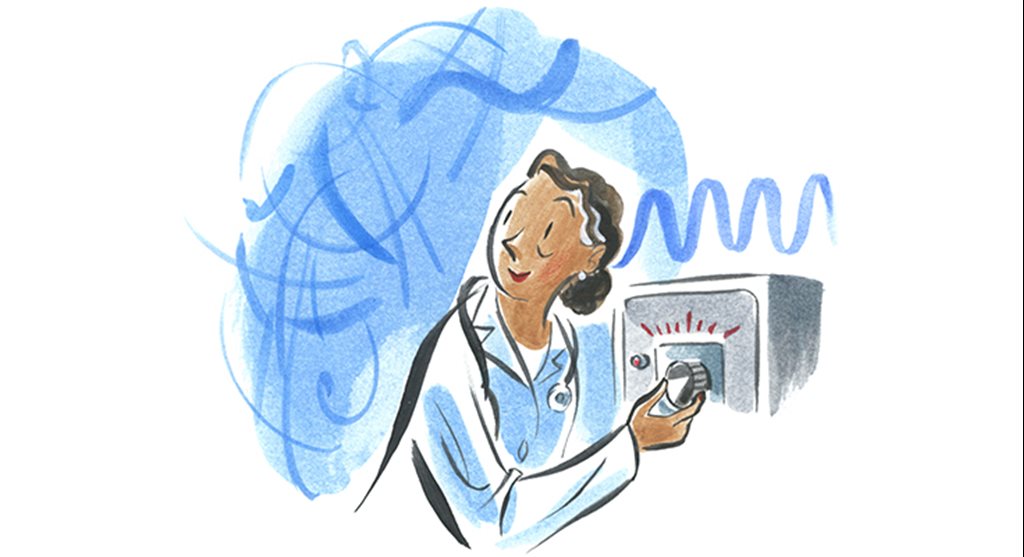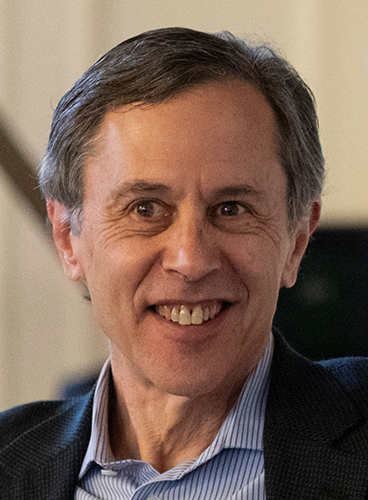
Do you practise medicine mindfully?
By Stuart Foxman
A primary care internist once described a time when he was in the midst of listening to a patient’s heart with his stethoscope. Just then, the patient started talking. “Quiet,” the doctor said, “I can’t hear you when I’m listening.”
Dr. Ronald Epstein included that tidbit in his book, Attending: Medicine, Mindfulness and Humanity. He says it captures some realities of medical practice. Stimuli compete for attention. Doctors need to focus, but may not always on what matters most. And the necessary, but habitual parts of the job, can put our brains on auto-pilot.
When you walk into an exam room, are you really there? Not necessarily, says Dr. Epstein. Physically, you’re present. But mentally, he says, you might be in a whole different place — distracted, thinking but not feeling, and perhaps not in the mindset to fully serve your patient.
Dr. Epstein has spent much of his career researching patient-centred care. He’s among the foremost experts in mindful medical practice, an advocate for improving doctor-patient communications, and a Professor of Family Medicine, Psychiatry & Oncology at the University of Rochester Medical Center.
Recently, Dr. Epstein talked to Dialogue about what defines mindfulness, why it matters for doctors, and how to begin practising mindfully.
Don’t empty your mind — pay attention to it

Start by dispelling the notion that mindfulness is about sitting in a quiet room, meditating to find bliss.
“Mindfulness has nothing to do with emptying your mind, or achieving a state of calm,” says Dr. Epstein. “It’s about paying attention to what’s actually happening.”
By their nature, minds are active. Dr. Epstein describes mindfulness as “the moment-to-moment purposeful attentiveness, to your physical and mental processes during everyday work.” The goal? “Practising with clarity and compassion,” he says.
To him, there are five foundations of mindfulness:
- Intention — clarify what’s most important to you (i.e., your values), and set aside the things that have nothing to do with the patient.
- Attention — don’t get trapped by the expected. Dr. Epstein says most of what doctors do is routine, so those tasks become automatic. Be ready to switch to a more deliberative mode. In his book, he references a remark by Dr. William Osler: we miss more by not seeing than by not knowing.
- Curiosity — have an educated and informed curiosity, i.e., what’s different this time or what’s new with this patient?
- Beginner’s Mind — see a situation with new eyes. Have a cultivated naivete, says Dr. Epstein: you’re an expert, but recognize there may be another way to look at this, i.e., take multiple perspectives.
- Being Present — be aware of and engaged in the moment. “Are you awake in the room or travelling elsewhere?” is how Dr. Epstein puts it.
Is there any reason why doctors, in particular, would find it difficult to be mindful? This is a busy, time-pressured profession. But it’s not the only one. Anyone can be preoccupied by their mental buzz, says Dr. Epstein.
“The hard part is being able to observe the rising and falling away of those feelings while being immersed in them,” he says.
Doctors may well have the intent of being compassionate, addressing the most important patient concerns and relieving suffering. Yet, that doesn’t always translate.
“Look at what doctors actually pay attention to,” Dr. Epstein says. “Physical symptoms as opposed to emotions. Diseases as opposed to the patient’s experience. There’s a disconnect between intention and attention, taking place below the level of awareness.”
Of course, many doctors practise mindfully without knowing anything about that label. Dr. Epstein’s book highlighted one. As a third-year medical student, Dr. Epstein worked with a senior psychiatrist during one rotation. One day, they were called to neurology to see a young patient who sustained a brain injury in a motorcycle accident.
The medical team wanted this psychiatrist to help manage the patient’s erratic behaviour. Dr. Epstein was observing, and expected to see a quick diagnosis and a prescription for medications. That’s what other psychiatrists tended to do. Not this one. “What does it feel like?” he asked the patient. “Help me understand.”
The patient started to explain, with many awkward pauses and random transitions from one story to another. The psychiatrist, in no hurry, kept encouraging. “What happened next?” Or, “Are you feeling sometimes that things aren’t making sense?”
Dr. Epstein writes that the psychiatrist was shifting back and forth between an expert’s perspective and a beginner’s mind, stepping into the patient’s chaos rather than just diagnosing it. The patient wasn’t a problem to be solved, but a person to be understood. That’s mindfulness — and it happened instinctively.
A person not a diagnosis
What are the obstacles to being mindful? In terms of external forces, Dr. Epstein is aware of the cognitive overload. That’s a huge factor.
He does palliative care in a hectic hospital with a crowded emergency room. Just trying to type a chart note can be tough enough, he says, when people are talking in both ears, alerts are popping on the computer screen, and loud noises and bright lights are everywhere.
Other constraints are unavoidable, but still shouldn’t be used as an excuse. In his book, Dr. Epstein acknowledges that time with patients can be short, mere minutes in some cases. “Elapsed time might be out of a doctor’s control to some degree, but perceived time can always be created,” he writes.
What does that mean? He explains that when you sit instead of stand, or let a few seconds of silence go to show you’re not rushed, that can make a difference. One study showed that people are more satisfied when they feel that doctors have spent more time, regardless of the actual length of the encounter.
Yet another barrier to mindfulness is what Dr. Epstein calls being “overly concrete.” It happens when you see patients more as a diagnosis than as a living, breathing human. “You’re going to act differently, and won’t really provide personalized care,” he says.
Neither can you if you’re in a negative emotional state, or have a more constricted view of options. “It’s like you’re seeing the world through dark grey glasses. It all becomes monochrome,” Dr. Epstein says.
To be open, present and see all the possibilities, you have to train yourself. You can Google mindfulness, get an app or go to a workshop, “but just asking the question of how can I be more mindful is probably the most important step,” says Dr. Epstein.
He advises doctors to develop a small habit to get into the right frame of mind. For instance, before you enter an exam room, take a deep breath when you touch the door handle. Notice what you’re feeling, and temporarily set aside whatever is irrelevant for the next encounter. Dr. Epstein visualizes putting those things on a shelf, to retrieve only after he sees the patient.
None of this has to take more than a few seconds. But reserving a moment to be mindful can have profound implications for patient experiences and outcomes.
Improve patient-centred care
Dr. Epstein is convinced that mindful doctors can significantly enhance patient-centred care.
“I think it comes down to presence,” he says. “It’s not just about giving patients all the options for their treatment, but about how you do it. Patients want a human being who treats them with dignity, respect and understanding.”
He notes that mindfulness can also help to combat a physician’s implicit biases. It’s human to have them — those attitudes towards a person or group that form or manifest without our conscious knowledge. Being mindful may not erase these biases, but it can reveal them, says Dr. Epstein. And that’s a big part of what counts.
One reason why biases are implicit is because they’re socially unacceptable to you. They sit below the surface. So, if you harbour a bias about, for example, obese patients, being mindful allows you to be more permeable to those negative emotions, Dr. Epstein explains.
“You can be aware of negative emotions without them hijacking your mind,” he says.
Dr. Epstein and his colleague, Mick Krasner, have published a study on the sustained impacts of taking a mindful practice workshop. They found that participating physicians subsequently experienced lower burnout and greater well-being, and approached patient care in a more empathic manner. All of that means mindfulness can make for stronger connections with patients and a more gratifying professional life.
“It allows me to regulate my emotions, identify the things that are most important, and direct my energy to those,” says Dr. Epstein.
Mindfulness can help doctors to be truly attending. That’s a choice, to listen to patients and to hear them too.












